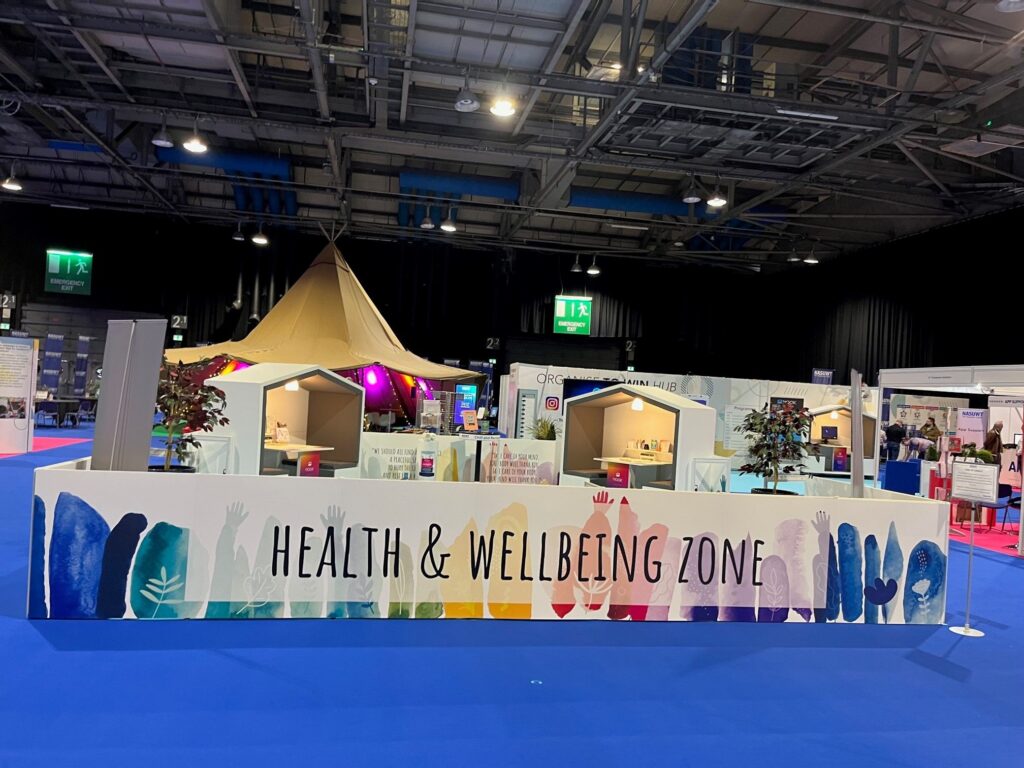
Bringing sustainability to your event
The need to make events more sustainable is paramount for most organisers today but the task of translating organisational values into workable, affordable actions is a major challenge for many. Here at The Venues Collection, we place sustainability at the heart of what we do – in fact our Sales Director, Jo Austin, is also an mia board director and their sustainability lead.
Our focus on managing our energy consumption, resource use, greenhouse gas emissions and food waste, so we asked Sammy Connell, Conferences and Events Manager at the NASUWT – The Teachers’ Union – how she planned the Union’s first live conference since 2019, and specifically the steps that were taken to thread sustainability throughout the event.
What were the event goals?
Our twin goals for the event were wellbeing and sustainability. The virtual event we held during Covid had created lots of benefits, including the absence of travel, but our members were keen to meet back in person. Our challenge was to bring people together and still make it a sustainable event.
What was your starting point?
The old practice of having reams of paper reports in delegate packs is not sustainable: we needed to be creative, so we produced an app containing all the conference materials. This provided a central source that replaced the hard copy but also added value by allowing delegate interactivity.
Did it work?
Yes – it exceeded our expectations. A crucial element for us was planning the app around our needs for the event, based on the delegate journey. We designed it to include our conference voting and evaluation features.
We ran a pre-event practice session and brought technical experts on-site. The app was used to conduct a survey on how delegates felt about returning to live meetings – and what their key goals and expectations were for this specific event. When asked how they felt about going paperless, 70 per cent said they felt comfortable with the technology and 30 per cent ticked either uncomfortable or very uncomfortable.
We gathered data from 4,000 people who were used to attending our conference. Some of them said they’d like a ‘How To’ guide; some requested training sessions, and others asked for email support. Yet another group asked for on-site support. So, we provided all of those things – in the form of fliers, a video, and a dedicated desk open every hour of the conference and staffed by people who’d been trained on the app. We ensured that everyone could access the content and we had extra devices on-site in case anyone had problems with their own equipment.
How did you take your exhibitor stakeholders on the paperless journey?
We generated conversations with them and found that some were immediately enthusiastic, while others welcomed discussion on innovative ways of going paperless. They weren’t so much resistant as keen to know how they could introduce elements such as videos and iPads on their stands etc. We linked the exhibitors up with our exhibition contractor and together they worked out how they could use the technology. And we didn’t restrict our focus to our exhibitors – we liaised with all of our contractors, including our production company; they were all stakeholders. The ICC Birmingham were very supportive.
Did you apply sustainability elements within the conference programme?
During the event we hosted six wellness sessions – short tutorials, including yoga, Tai Chi and breathing exercises. We’re based in Birmingham and worked with a local wellness centre which supported us in sourcing the right contacts. Delegates were each given an exhibitor profile including website links so they could find out more about the practitioners before and after the sessions.
Did you meet any insurmountable obstacles?
Yes – we weren’t able to apportion members’ weighted voting rights within the app. So, we had to print voting cards – on recycled paper. We want to get away from using physical cards but haven’t cracked it yet.
For our first year we didn’t want our delegates to be completely overwhelmed by the technology – it was about getting the basics right. As organisers we thought that having everything digitised might over-complicate things. So, there was lots of functionality on the app that we didn’t use.
We are now building on the app, thinking about what functionality we can introduce at our next conference in Glasgow.
If you could change one thing or improve on one area, what would that be?
We streamed all of the public sessions for those people who couldn’t get away or attend for all four days. But because hybrid events are so expensive (just like organising two events!) we were only able to do live streaming without delegates being able to communicate with the moderator or vote. If I had a magic wand, I’d make it possible for remote delegates to engage fully with the content via a chat function and to be able to vote remotely as well.
One thing we were able to do as a hybrid was to hold a fringe meeting in the form of an international panel with participating partners from all over the world. Our online speakers could see and hear each other – and this was mind-blowingly great. That meeting was our toe-dipping exercise. It lasted one and a half hours and involved interpreters as well. I would love to see more of that kind of session but it’s an expensive format which can take double the budget.
Is sustainability a key factor for your next event? If so, The Venues Collection can make it easy for you; we’ve invested in and implemented many different sustainable initiatives to ensure that we can host sustainable events. Our parent company, Compass Group UK & Ireland, has set ambitious targets to be Net Zero by 2030 and we are leading the way in implementing and changing practices to enable us to meet these ambitions. Our Future First Charter is our framework to deliver our social purpose, and it lists all the ways in which we are driving sustainability through our venues. For example, we have a target to make 80% of our meal ingredients grown, reared or made in the UK. We are also installing solar powered electric vehicle charging canopies this summer, and following a successful trial at Eastwood Hall we are creating composting systems at each of our venues. We have also installed energy monitoring software at our properties to measure (and reduce) electricity, gas and water usage.
Green Standard
Another of our initiatives has been to introduce a carbon labelling system on our restaurant and event menus. The information we provide is based on calculations of greenhouse gas emissions derived from values assigned at each stage of the food production life cycle.
All our venues have also been awarded the Silver level in the Green Meetings Accreditation scheme, and we are now working towards achieving Gold.
We’ll be delighted to assist you in your sustainable journey – please contact our team on: enquiries@thevenuescollection.co.uk
Go back to other articles

